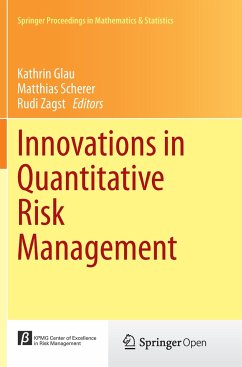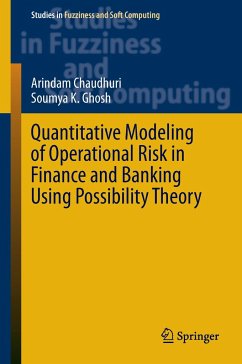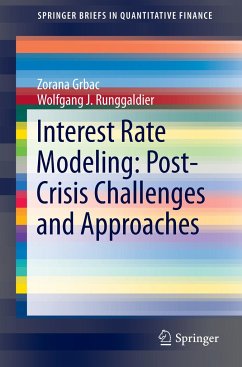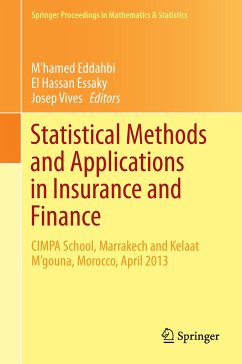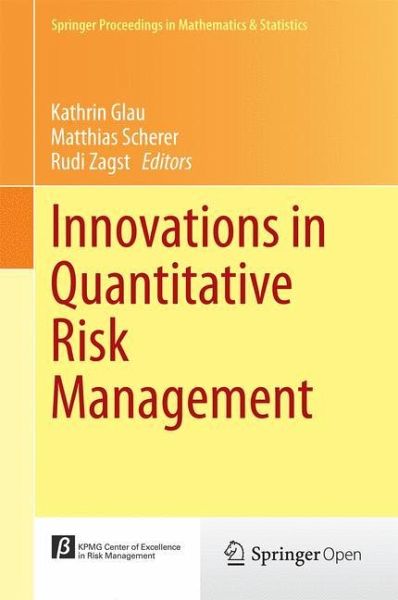
Innovations in Quantitative Risk Management
TU München, September 2013
Herausgegeben: Glau, Kathrin; Scherer, Matthias; Zagst, Rudi
Versandkostenfrei!
Versandfertig in 6-10 Tagen
38,99 €
inkl. MwSt.

PAYBACK Punkte
19 °P sammeln!
Quantitative models are omnipresent -but often controversially discussed- in todays risk management practice. New regulations, innovative financial products, and advances in valuation techniques provide a continuous ow of challenging problems for financial engineers and risk managers alike. Designing a sound stochastic model requires finding a careful balance between parsimonious model assumptions, mathematical viability, and interpretability of the output. Moreover, data requirements and the end-user training are to be considered as well.The KPMG Center of Excellence in Risk Management confer...
Quantitative models are omnipresent -but often controversially discussed- in todays risk management practice. New regulations, innovative financial products, and advances in valuation techniques provide a continuous ow of challenging problems for financial engineers and risk managers alike. Designing a sound stochastic model requires finding a careful balance between parsimonious model assumptions, mathematical viability, and interpretability of the output. Moreover, data requirements and the end-user training are to be considered as well.
The KPMG Center of Excellence in Risk Management conference Risk Management Reloaded and this proceedings volume contribute to bridging the gap between academia -providing methodological advances- and practice -having a firm understanding of the economic conditions in which a given model is used. Discussed fields of application range from asset management, credit risk, and energy to risk management issues in insurance. Methodologically, dependence modeling, multiple-curve interest rate-models, and model risk are addressed. Finally, regulatory developments and possible limits of mathematical modeling are discussed.
The KPMG Center of Excellence in Risk Management conference Risk Management Reloaded and this proceedings volume contribute to bridging the gap between academia -providing methodological advances- and practice -having a firm understanding of the economic conditions in which a given model is used. Discussed fields of application range from asset management, credit risk, and energy to risk management issues in insurance. Methodologically, dependence modeling, multiple-curve interest rate-models, and model risk are addressed. Finally, regulatory developments and possible limits of mathematical modeling are discussed.




